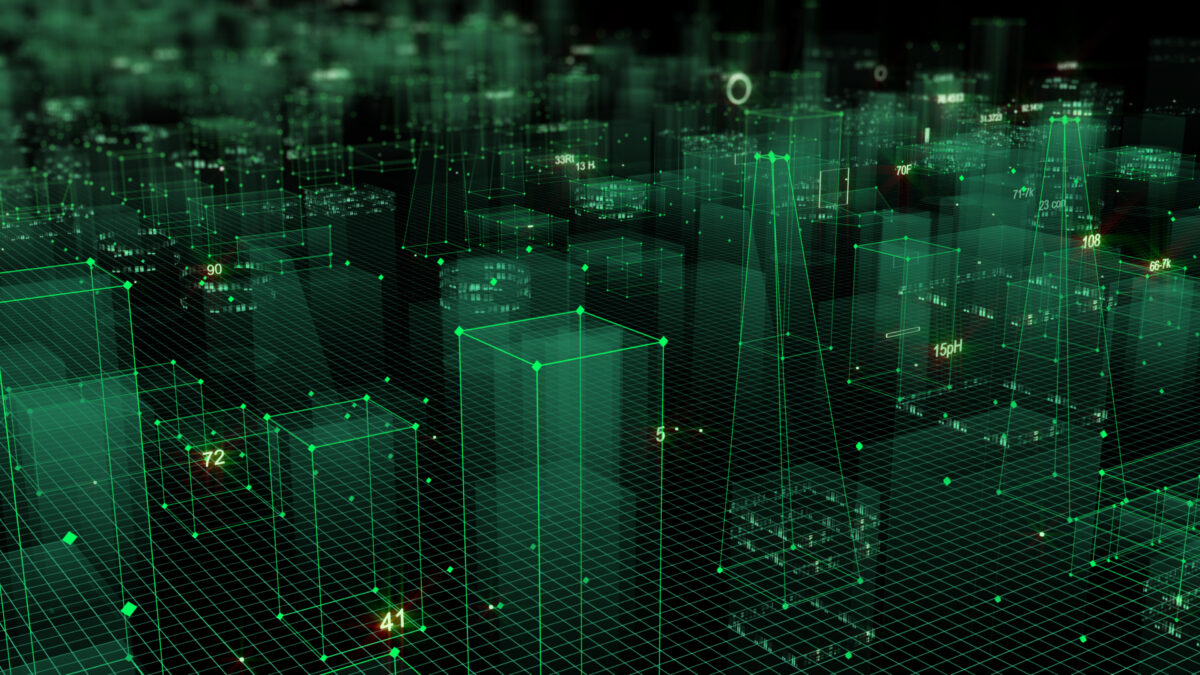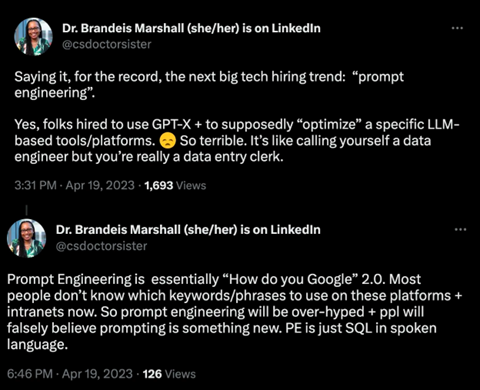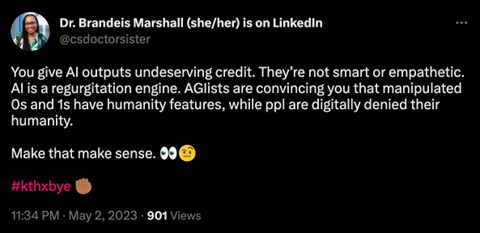
3 human-driven decision-making competencies that every industry needs
With months of intense face-to-face discussions on "What can AI do for you," op-ed think pieces, and podcasts, I want to pose the opposite question: What can't AI do? Some individuals will enthusiastically assert, "Nothing. It's the most disruptive and transformative advancement in technology. It is and will continue to change the world and how we interact with the digital space."

Moreover, research reports supported by statistics predict a future heavily influenced by AI.
- In 2018, the McKinsey Global Institute released a report on the future of work, estimating that by 2030, AI systems, tools, and platforms could displace approximately 400 million people worldwide.
- In March 2023, Goldman Sachs published a global economies impact report, suggesting that "generative AI could substitute up to one-fourth of current work."
- Earlier this month, the World Economic Forum released its Future of Jobs report, which aligned with Goldman Sachs' prediction but provided specific figures on the impact of automation on jobs. The job outlook estimation is rather sobering: 83 million job roles will disappear, while only 69 million job roles will be created. This indicates a job role differential of 14 million.
The fear of job replacement or the inability to secure a job that provides a living wage is pervasive. People are scared about the possibility of being automated out of their careers, livelihoods, and the means to sustain their desired lifestyle. Various reports even outline a list of professions (in technology, media, law, etc.) that are first on the chopping block due to artificial intelligence (AI). What compounds the issue is the absence of opposing viewpoints within these reports, which fail to offer recommendations on safeguarding one's career against the impact of AI.

Instead of solely focusing on the projected widespread adoption of AI in all aspects of our lives, it is essential to recognize and emphasize what cannot be accomplished by AI. There are actions, tasks, and skills that remain unAI-able, as they cannot be digitized or automated. These particular responsibilities rely on human involvement to consistently make critical and pivotal decisions. So, I’ve identified three categories of human-driven decision-making competencies that are currently indispensable in every sector and industry, and will continue to be so in the foreseeable future.
Contextual Awareness: Now context is a monolith. The various contexts that humans consider encompass multiple factors, including cultural, economic, emotional, historical, locational, political, situational, and social elements. There is often an interconnectedness that transcends these distinct contexts. For instance, the economic perspective cannot be detached from the social or political lens. Attempting to isolate these contexts as independent and identically distributed components does not reflect real-life situations, regardless of how many well-known AI researchers try to construct representative mathematical equations through elaborate experiments and publish their outcomes. Furthermore, online platforms frequently share images that necessitate individuals' historical, locational, and political awareness in order to recognize that they have been manipulated and fabricated to elicit specific responses from the public.
Conflict Resolution: AI can’t handle friction. In fact, it often takes a biased stance, typically leaning toward the most unfavorable perspective. An example of this occurred in 2016 with Tay, an AI chatbot that generated tweets containing racist, misogynistic, and other discriminatory content before being swiftly shut down within a day. Fast forward to March 2023 and Snapchat's AI chatbot integrated with ChatGPT provided inappropriate advice to an adult, mistakenly assuming they were a minor. AI lacks the ability to discern when to remain silent or withhold an answer, as it is programmed to respond. However, the quality, appropriateness, and validity of these responses remain questionable. Handling complex dilemmas is a significant weakness for AI systems, tools, and platforms. While AI can potentially present humans with options, but it can’t really help us make well-informed choices.
Critical Thinking: Our human capacity to assess and evaluate situations is one of our distinctive attributes. Critical thinking combines problem-solving, curiosity, creativity, inference, and strategic thinking. AI struggles to excel in any of these critical thinking aspects. For example, computer programming, or coding, effectively solves mathematical problems. However, once any element within a mathematical equation becomes a representation of people, the problem-solving approach through coding breaks down, leading to the exclusion and oppression of at least one demographic group. Another instance is AI-generated art, which claims to be creative. Nevertheless, numerous legal and ethical concerns arise regarding copyright infringement due to the use of content scraped from online repositories. AI encounters limitations in reasoning and judgment since these processes rely on the balance of lived experiences, expertise, and skills. AI lacks lived experiences, possesses limited expertise as determined by training and testing datasets, and can only exhibit programmed skills. The remaining aspects are fulfilled by individuals as they exercise their critical thinking abilities.
AI can’t provide contextual awareness, resolve conflicts, or engage in critical thinking. If you pursue a career or develop skills that involve a combination of these three functions, you will have a promising professional path. Your job responsibilities are likely to shift rather than disappear entirely, allowing you to diagnose the influence of multiple contexts, manage tensions, and think critically. For instance, in the case of coders, whether with computer science degrees or not, there will be an increasing need to explain and interpret the actions of generative AI. It will be essential for software developers to be mindful of the potential societal impacts of the code they write. In essence, it will be crucial for all of us to comprehend the nuances of our digital and communication skills within our respective fields, understanding both their strengths and weaknesses.